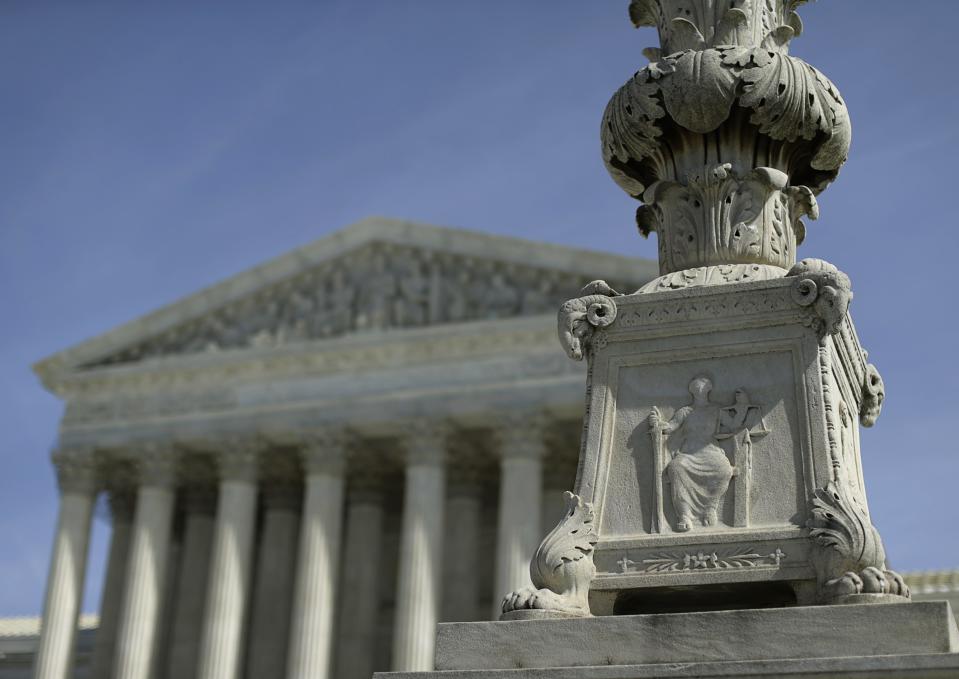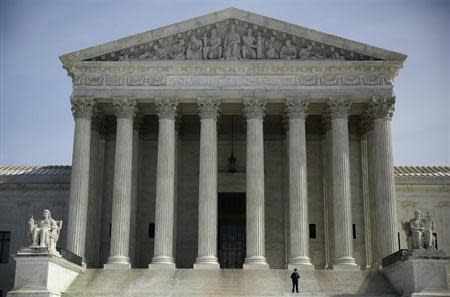U.S. top court upholds Michigan ban on college affirmative action
By Lawrence Hurley WASHINGTON (Reuters) - The U.S. Supreme Court on Tuesday further undermined the use of racial preferences in higher education by upholding a voter-approved Michigan law that banned the practice in decisions on which students to admit to state universities. The 6-2 vote and the four opinions issued by justices in the majority revealed divisions on the court as to the legal rationale in rejecting civil rights groups' challenge to the ban. Justice Sonia Sotomayor, who wrote the sole dissenting opinion, read excerpts from the bench, calling the decision a blow to "historically marginalized groups, which rely on the federal courts to protect their constitutional rights." The court emphasized that it was not deciding the larger and divisive question of whether affirmative action admission policies can be lawful. But the decision made it clear that voter-approved affirmative action bans can withstand legal challenges. It could encourage other states to pass similar bans and deter challenges to existing bans in seven other states. Civil rights groups had argued that the 2006 Michigan constitutional amendment that passed as a ballot initiative had imposed burdens on racial minorities in violation of the U.S. Constitution's guarantee of equal protection. Affirmative action programs, first advocated in the 1960s to combat discrimination against racial minorities, have faced a backlash from conservatives in recent decades. Court rulings and action by states have chipped away at the practice. In November 2012, a divided 6th U.S. Circuit Court of Appeals in Cincinnati ruled Michigan's ban unconstitutional, prompting the state to appeal to the Supreme Court. Michigan's Republican attorney general, Bill Schuette, said in an interview that the Supreme Court had provided other states with a "constitutional roadmap" if they wish to enact similar laws and had "heard the voices of voters who overwhelmingly voted to require equal treatment in admissions." The other states with similar bans are Arizona, California, Florida, Nebraska, New Hampshire, Oklahoma and Washington. Some states that do not currently have bans - Alabama, Georgia and West Virginia - backed Michigan. Ward Connerly, a veteran affirmative action opponent who helped pass the California ban, said no states are actively pursuing similar voter-approved measures. "These initiatives are very complicated, very expensive and very laborious," Connerly said in an interview. The ruling was decried by civil rights activists and some Democrats. "Our nation has come a long way in seeking to end discrimination, but our work is far from complete at a time of continued under-representation of minorities in high education and many walks of life," said Michigan Democratic Representative John Conyers, one of the senior black members of Congress. White House spokesman Jay Carney told reporters that President Barack Obama, the first black U.S. president, continues to believe that, in the context of university admissions, "considering race, along with other factors, can be appropriate in certain circumstances." 'WHO MAY RESOLVE IT' On Tuesday, the justices in the majority were divided three ways. Justice Anthony Kennedy wrote an opinion, joined by Chief Justice John Roberts and Justice Samuel Alito, saying the lower court that threw out the law lacked the authority to do so. "This case is not about how the debate about racial preferences should be resolved," Kennedy wrote. "It is about who may resolve it." Justice Antonin Scalia wrote a separate opinion, joined by Justice Clarence Thomas, in which he said challenges to laws that rest on equal protection claims must show that the law reflects a discriminatory purpose. This law did not, he said. Justice Stephen Breyer was the only member of the liberal wing of the court to join the majority. The dissenting votes came from two of the court's liberal members, Justices Sotomayor and Ruth Bader Ginsburg. Justice Elena Kagan did not take part, presumably because she worked on the case in her previous position as U.S. solicitor general. Mark Rosenbaum, the American Civil Liberties Union lawyer who argued before the Supreme Court, said the ban "unfairly keeps students from asking universities to consider race as one factor in admissions, but allows consideration of factors like legacy status, athletic achievement and geography." The Michigan case was argued in October 2013, just four months after the justices issued a legally narrow ruling on affirmative action in a different case involving the University of Texas at Austin. In a lopsided 7-1 vote that few had expected, the court said university policies that took race into account could be more vulnerable to legal challenges in the future but the court did not strike the policy down. The Michigan case raised a different legal question, focusing not on the state's ban on affirmative action itself but rather the political process that led to its amendment being enacted. The case is Schuette v. Coalition to Defend Affirmative Action, U.S. Supreme Court, No. 12-682. (Additional reporting by Steve Holland; Editing by Will Dunham, Cynthia Osterman and Grant McCool)



